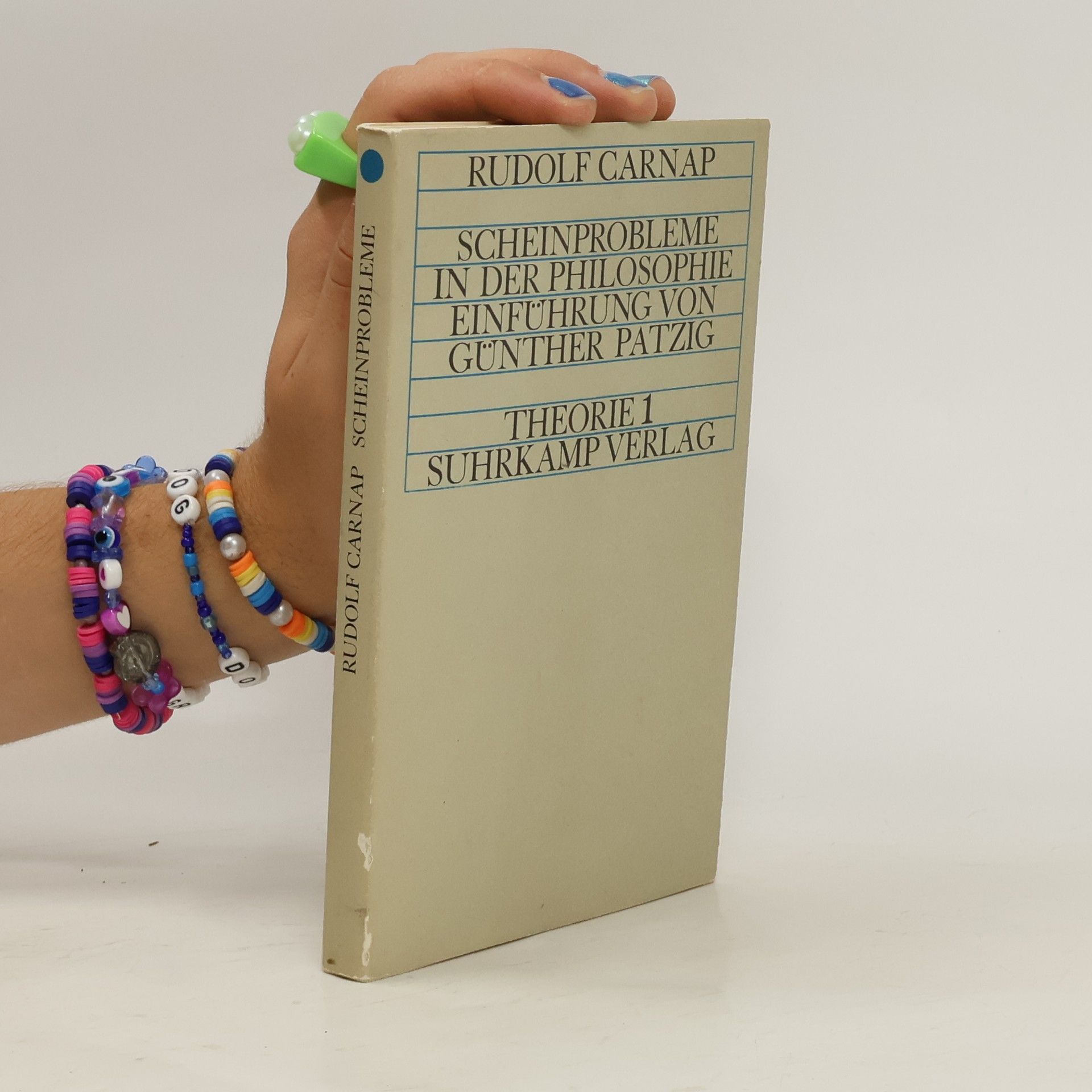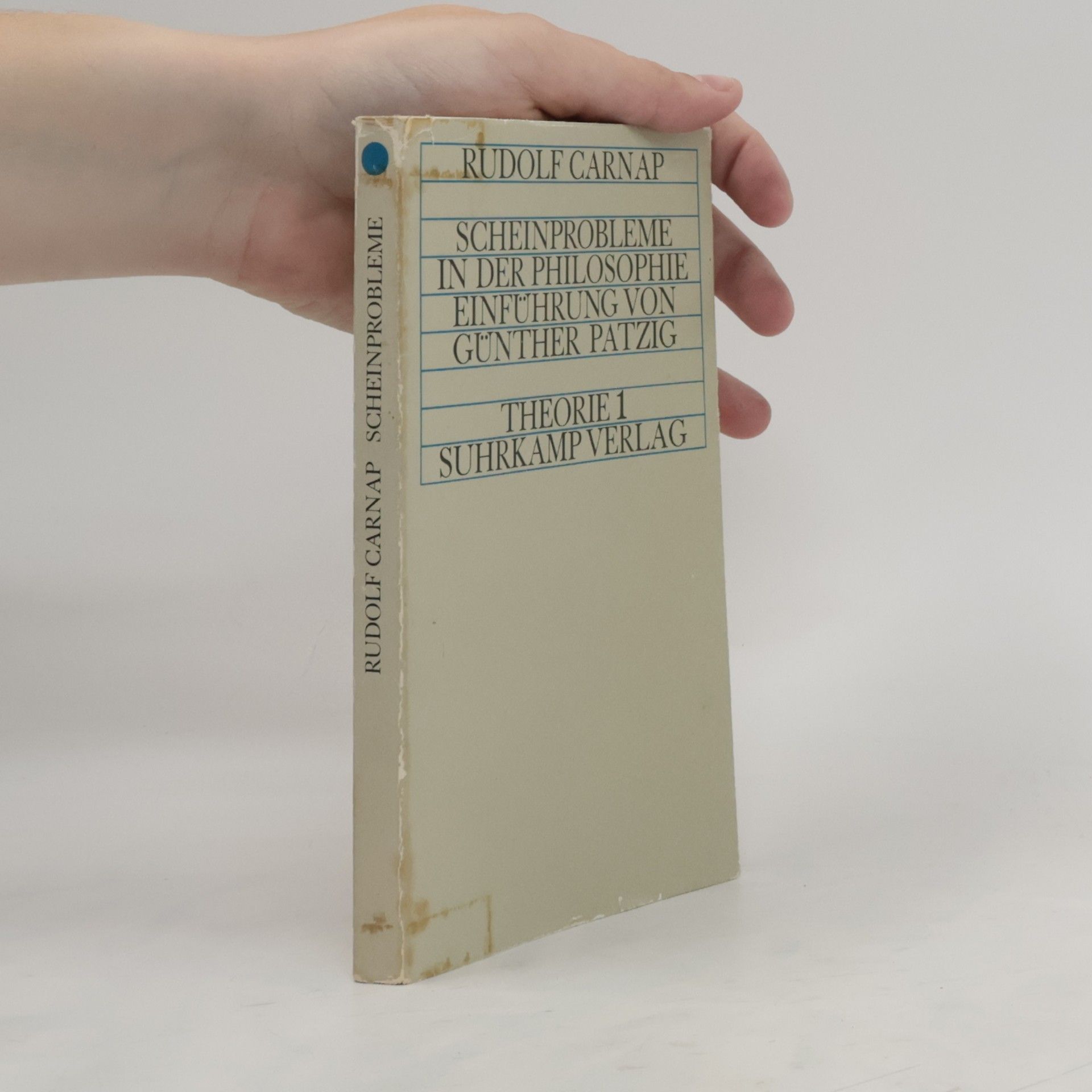One of the most creative philosophers of the 20th century, Rudolf Carnap presented a series of science lectures at the University of California in 1958. The present volume is an outgrowth of that seminar, which dealt with the philosophical foundations of physics. Edited by Martin Gardner from transcripts of Carnap's classroom lectures and discussions, the book remains one of the clearest and soundest introductions to the philosophy of science.Specially designed to appeal to a wide range of readers, An Introduction to thePhilosophy of Science offers accessible coverage of such topics as laws and probability, measurement and quantitative language, the structure of space, causality and determinism, theoretical laws and concepts and much more. Stimulating and thought-provoking, the text will be of interest to philosophers, scientists and anyone interested in logical analysis of the concepts, statements and theories of science. Its clear and readable style help make it "the best book available for the intelligent reader who wants to gain some insight into the nature of contemporary philosophy of science" ― Choice. Foreword to the Basic Books Paperback Edition, 1974 (Gardner); Preface (Carnap); Foreword to the Dover Edition (Gardner). 35 black-and-white illustrations. Bibliography.
Rudolf Carnap Boeken
Rudolf Carnap was een sleutelfiguur binnen het logisch positivisme, een in Duitsland geboren filosoof die een grote invloed had op het 20e-eeuwse denken. Hij stelde dat metafysische uitspraken betekenisloos zijn, omdat ze niet empirisch geverifieerd kunnen worden. Carnap betoogde dat veel filosofische problemen illusoir zijn en voortkomen uit taalmisbruik. Zijn werk leverde belangrijke bijdragen aan de wetenschapsfilosofie en taalfilosofie.

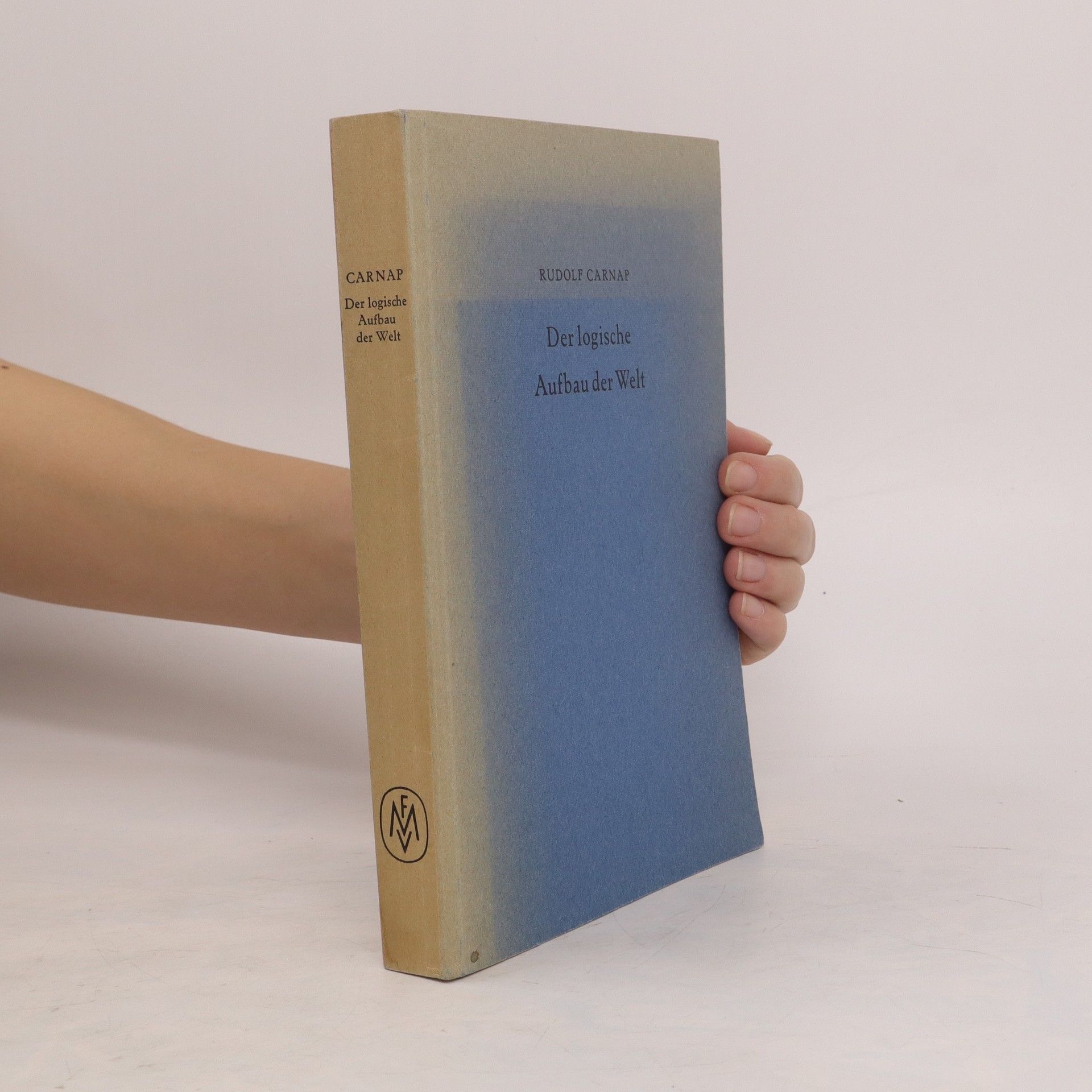



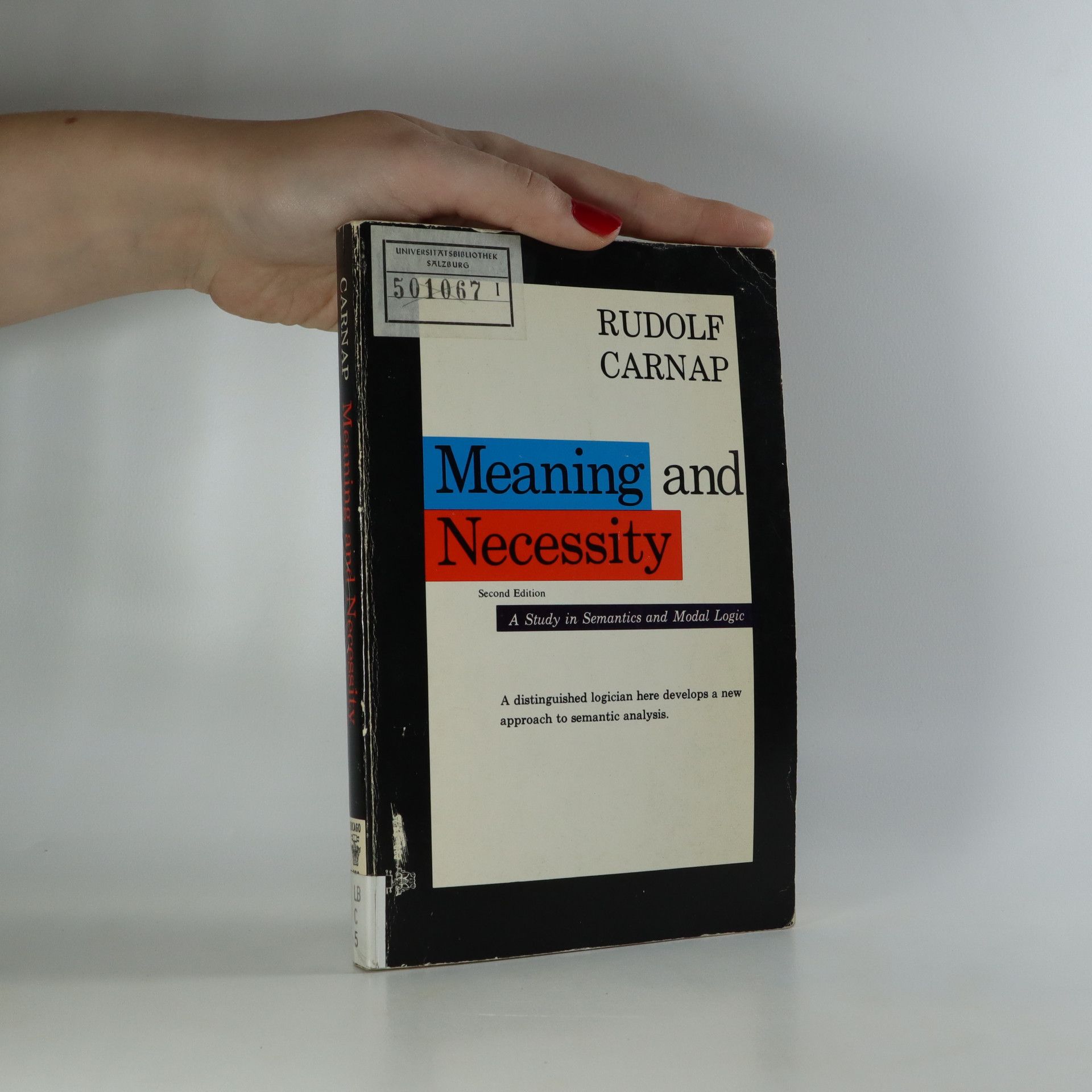
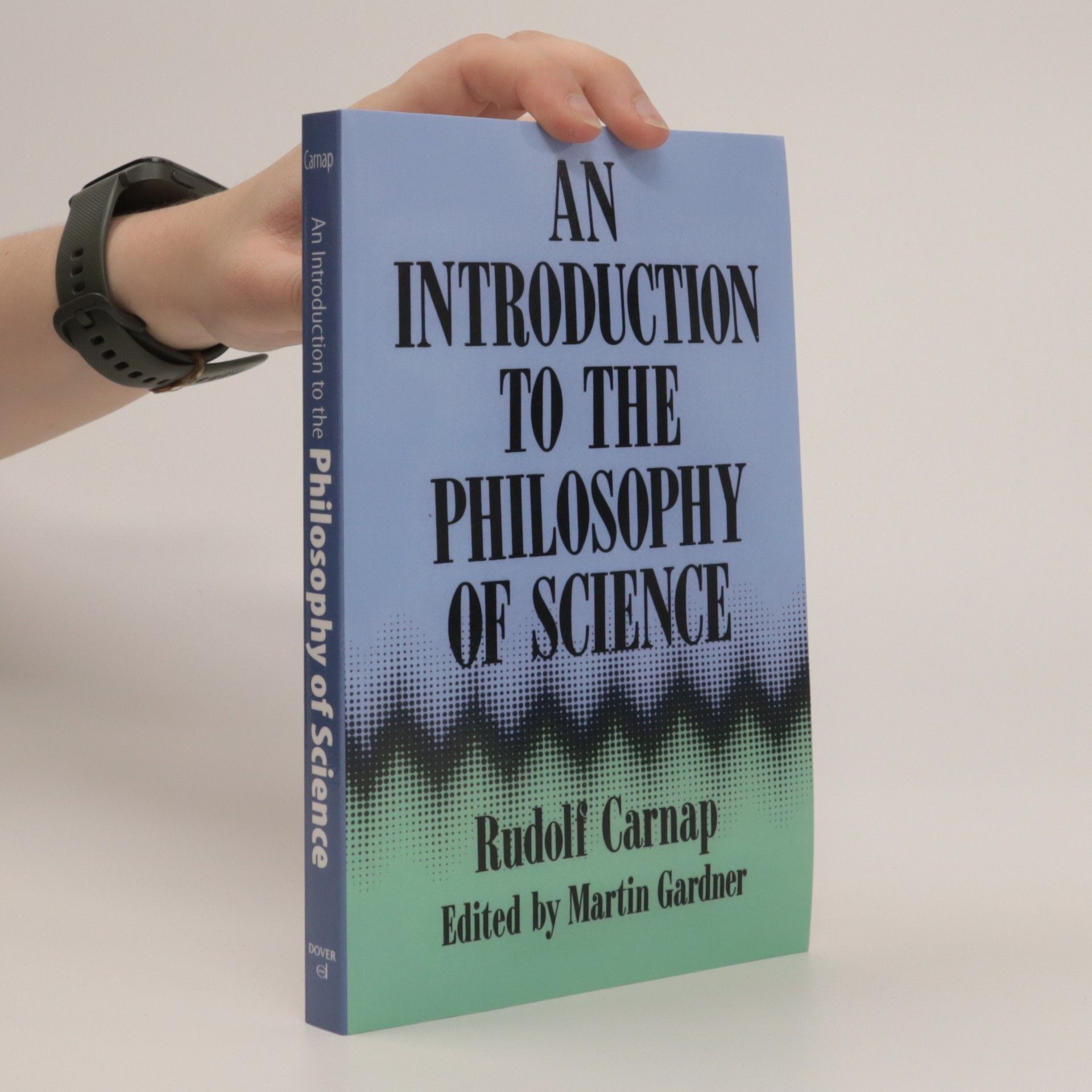
Focusing on a new approach to semantical analysis, the book introduces the method of extension and intension, which redefines the understanding of linguistic meanings. By modifying traditional concepts of class and property, it contrasts this innovative method with conventional semantical approaches that treat expressions as names of entities. Instead, it emphasizes that expressions embody both an intension and an extension, offering a fresh perspective on meaning in language.
Two Essays on Entropy
- 146bladzijden
- 6 uur lezen
This title is part of UC Press's Voices Revived program, which commemorates University of California Press’s mission to seek out and cultivate the brightest minds and give them voice, reach, and impact. Drawing on a backlist dating to 1893, Voices Revived makes high-quality, peer-reviewed scholarship accessible once again using print-on-demand technology. This title was originally published in 1977.
Logický pozitivizmus
- 540bladzijden
- 19 uur lezen
Tretí zväzok Malej antológie filozofie 20. storočia obsahuje projekty filozofie a filozofie vedy, ktoré vznikli v prvých desaťročiach dvadsiateho storočia a mali charakter scientizácie možného chápania filozofie. Pre toto obdobie je typická predstava, že takmer všekty dôležité problémy súčasnosti nemajú bez využitia vedy veľké šance na úspech. V tomto zväzku sa čitateľ zoznámi s názormi M. Schlicka, R. Carnapa, O. Neuhartha, C. G. Hempela, H. Reichenbacha a A. J. Ayera. editori: F. Mihina, T. Sedová, M. Zouhar
In seinem 1928 erschienenen Hauptwerk Der logische Aufbau der Welt unternahm Rudolf Carnap den Versuch, die erkenntnistheoretische These des englischen Empirismus, nach der die Basis aller unserer Wirklichkeitserkenntnis in Wahrnehmungserlebnissen bestehe, durch die methodische und zugleich logisch einsichtige Konstruktion der Gegenstandswelt aus solcherart bestimmten Elementarerlebnissen zu untermauern. Neu und richtungweisend an diesem Ansatz war der Gebrauch, den Carnap - er war Schüler Freges - 'von den Hilfmitteln der modernen Logik, besonders der von Russell entwickelten Relationenlogik, machte, und die Rücksicht auf die psychologische Erkenntnis, daß die einfachen Sinnesdaten nicht Erlebnisse sind, sondern erst rückwärts aus den Erlebnissen erschlossen werden müssen' (Günter Patzig).
Scheinprobleme in der Philosophie
Theorie 1
Einführung in die symbolische Logik
mit besonderer Berücksichtigung ihrer Anwendungen
- 256bladzijden
- 9 uur lezen
Die symbolische Logik hat sich in den letzten hundert Jahren grundlegend gewandelt und zeichnet sich durch ihre exakte Formulierung und umfangreiche Anwendbarkeit aus. Rudolf Carnap beleuchtet in diesem Werk die Entwicklung und die vielfältigen Einsatzmöglichkeiten der symbolischen Logik, insbesondere in der Theorie der Relationen und höheren Begriffe. Das Buch richtet sich an Philosophen, Mathematiker und Fachwissenschaftler, die ein Interesse an der präzisen Analyse von Begriffen haben. Die dritte, unveränderte Auflage bietet eine umfassende Einführung in diese bedeutende Disziplin.
Die frühen Tagebücher Rudolf Carnaps bieten einen einzigartigen Einblick in die Gedankenwelt einer Schlüsselperson der 20. Jahrhunderts Philosophie. Sie beleuchten die Entstehung seines Werkes sowie die Geschichte des Wiener Kreises und des Logischen Empirismus. Die Edition umfasst auch sein „Kriegstagebuch“ und ist sorgfältig bearbeitet.
